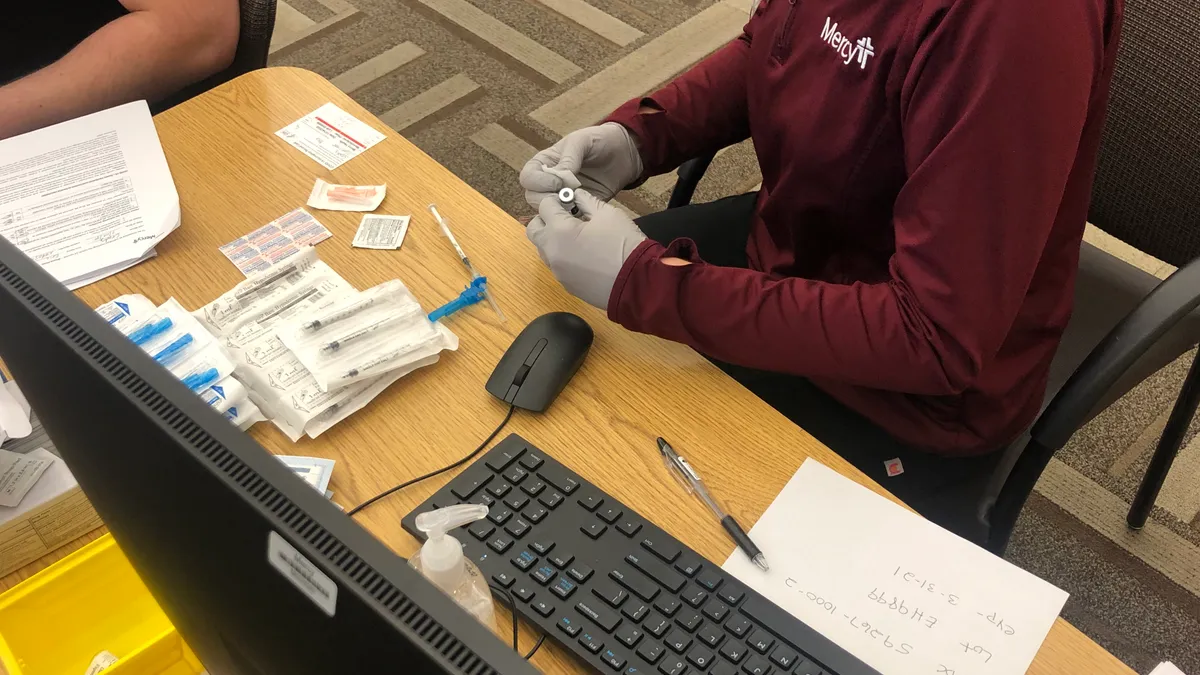Dive Brief:
- A number of states expanded or plan to expand vaccine eligibility to all adult residents in the coming weeks, and the majority of employers in a recent Willis Towers Watson survey said they felt COVID-19 immunization would allow the U.S. economy to rebound.
- Respondents identified varying measures to encourage vaccination. Most, 60%, said they talked to employees about the value of vaccines, and 35% were planning or considering doing so. Just over one-third said they created policies "to make it easy for workers to get the vaccine," Willis Towers Watson said, and 50% were considering doing the same.
- Comparatively fewer employers were offering vaccination incentives to employees, and only 29% were planning or considering doing so. Among those that offered incentives, 39% were providing additional leave or vacation time, and 27% were providing additional leave to employees who have negative reactions or experience sickness following vaccination.
Dive Insight:
More than 170 million total doses of COVID-19 vaccines have been administered in the U.S. at this point in the nation's roll-out. Yet, despite the progress public health officials have made, research suggests there are still barriers to overcome.
Though a majority Americans surveyed in late January and early February by the Associated Press and NORC at the University of Chicago said they either "definitely" or "probably" would get vaccinated, or had already done so, 15% said they "definitely will not," and 17% said they "probably will not" get vaccinated. Among respondents who were not "definitely" planning to get vaccinated, the AP-NORC poll found concerns about possible side effects as the most commonly cited reason for their stances.
Other research has shown workers also are similarly divided on the subject of employer-provided vaccination incentives and requirements. February results from an Eagle Hill Consulting survey revealed 52% of workers believed employers should require that employees receive a COVID-19 vaccine, and 57% were in favor of vaccination incentives.
Few employers in the Willis Towers Watson survey, 10%, believed that vaccines should be mandatory, and the same percentage said they were planning or considering requiring employees to provide proof of vaccination as a condition of employment. That is despite guidance from the U.S. Equal Employment Opportunity Commission that employers can require such proof with some exceptions and despite recent efforts by workplace management firms to create solutions that would utilize vaccination status as a building access factor.
Multiple employers, however, have announced vaccination incentive plans, with policies ranging from direct payments to additional time or leave to pursue vaccination or recover from side effects. In official guidance, the Centers for Disease Control and Prevention encouraged employers to offer paid sick leave to workers showing "signs and symptoms" after a vaccination.
HR leaders are still waiting for future EEOC guidance on vaccination incentives, on which a lack of clarity has complicated compliance efforts, attorneys recently told HR Dive. But employers do have access to educational resources, made available by the CDC earlier this year, that could aid communications efforts on items such as vaccine efficacy and safety.













